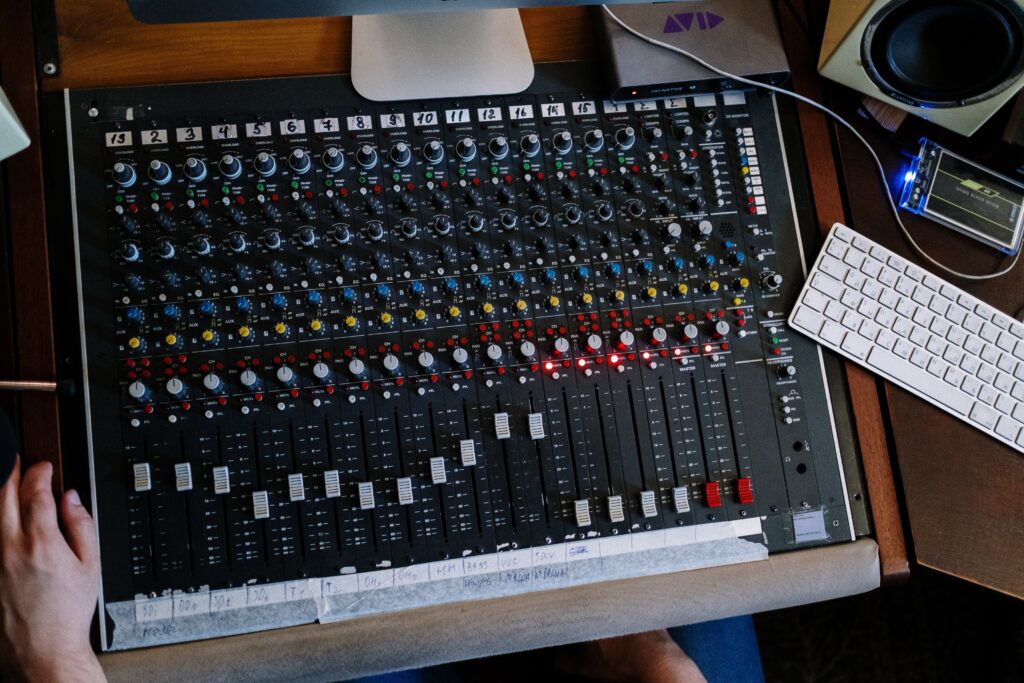The start of a journey for a singer/songwriter is focused solely on composition and performance skills. As we progress, our musical ear develops the ability to hear frequencies, tonality, and dynamic changes throughout our music career. We tend to ask for a tighter kick on the bass drum. We want a warmer tone on the acoustic guitar or need an echo repeating in the chorus to give our song a bit more flavor.
So how can we get all of that during our performances? Audio Mixers or soundboards can sweeten individual audio recordings or performances, bringing the sound quality of a song to the next level.
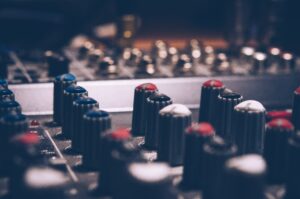
An audio mixer takes one or multiple audio channels into one device for more control over the sound using tools such as equalization, compression, reverb, delay, monitor gain, etc. In other words, a mixer can separate each instrument, voice, sound, anything transduced through a microphone; and will give you the ability to manipulate each one for a well-balanced track. Audio mixers are produced in various designs, portability, and sizes. Depending on the type of audio mixer, they tend to have other names such as the soundboard, sound desk, field recorder, sound console, or just mixer.
Digital v Analog
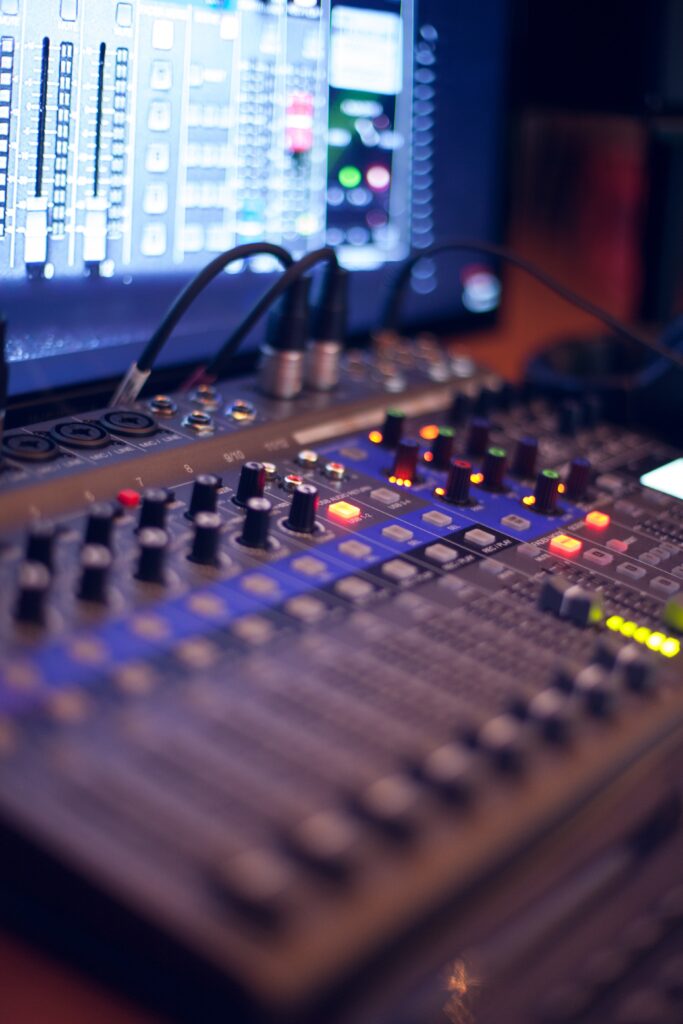 Now there can be a lot to say here about what the differences are between digital mixers and analog mixers. I will get into the needy gritty about these differences in the future, but because this post is aimed towards the beginner audio engineer I am going to keep it simple.
Now there can be a lot to say here about what the differences are between digital mixers and analog mixers. I will get into the needy gritty about these differences in the future, but because this post is aimed towards the beginner audio engineer I am going to keep it simple.
A digital board is digital and an analog board is analog…… man that was tough to write!
Okay on a serious note. Analog boards have been around since the 1930s. They are very simple to learn and use. They don’t have a digital screen or fancy lights to give a cool feel to your workflow. Configuring and routing these boards don’t happen since these boards are a “what you see is what you get” scenario. If you wanted to add a specific effect to the board then that would require a purchase of that effect that will route outside of the board and not internally. This is called outboard gear.
Digital boards, on the other hand, can use a computer and/or thumb drive to give you instant access to effect processors, EQ parametric, compressors and so much more. Which can save you time and space, but don’t let instant access fool you. Digital mixers can be a learning curve. Configuring and routing while understanding your sound console can be frustrating since there will always be a glitch in anything digital.
Even though digital boards are becoming more and more common doesn’t mean analog is outdated. There is something that an analog board gives that a digital board just doesn’t offer. It can be in sound, touch, workflow, etc… audio engineers still use analog boards today to create their craft.
Common uses
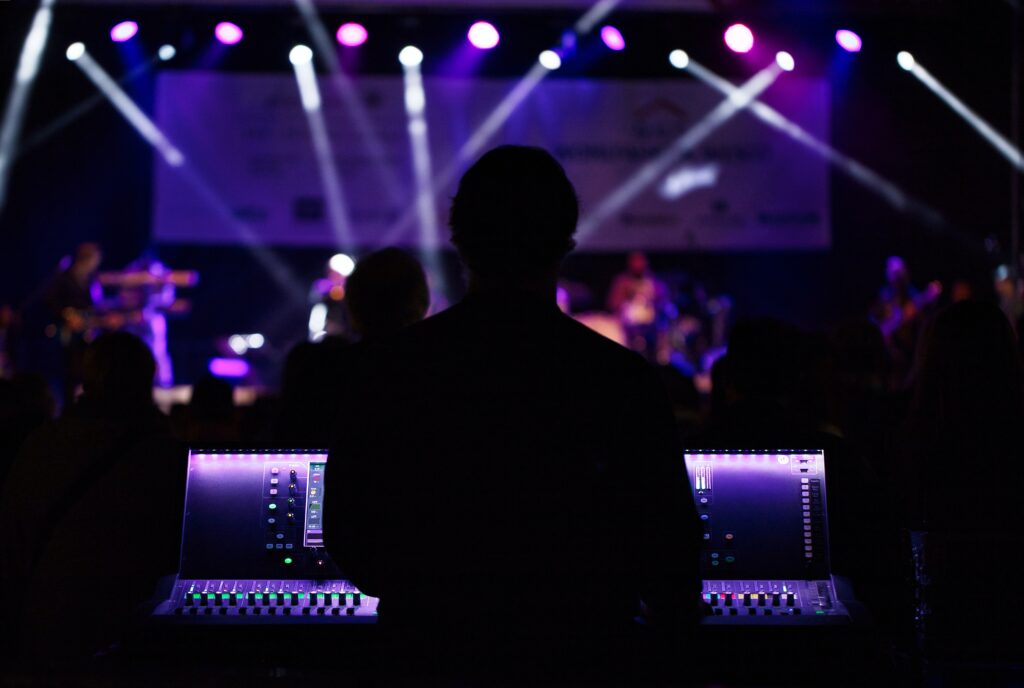
Mixers are used in almost every situation where audio is an important factor. Run by special audio engineers, here are a few common uses where mixers will be present.
- Music Studios: The most obvious. Mixers are used to capture sweet and true recordings of musicians and singers.
- Concerts or Live performances: Have ya seen people behind a big board with knobs and switches and a ton of wires and cables coming out of the board? Yup, that is a sound console. This baby is assisting your enjoyment of the show or performance. Whether it’s a band playing or a high school class portraying Shakespeare on stage. The sound console balances and keeps you entertained for the entire performance.
- Film, TV, podcast, and creative media: Now depending on the project, these mixers can be a bit smaller and much more portable than regular soundboards. They are built this way for easier travel for the audio engineer. One moment they can be inside a coffee shop capturing the atmosphere and ambiance of its surroundings. Within a short time frame, the audio engineer might be capturing a podcast that takes place at a park. These portable mixers are usually called sound recorders and are almost always digital these days, but will have similar specs as a sound console or a mixer
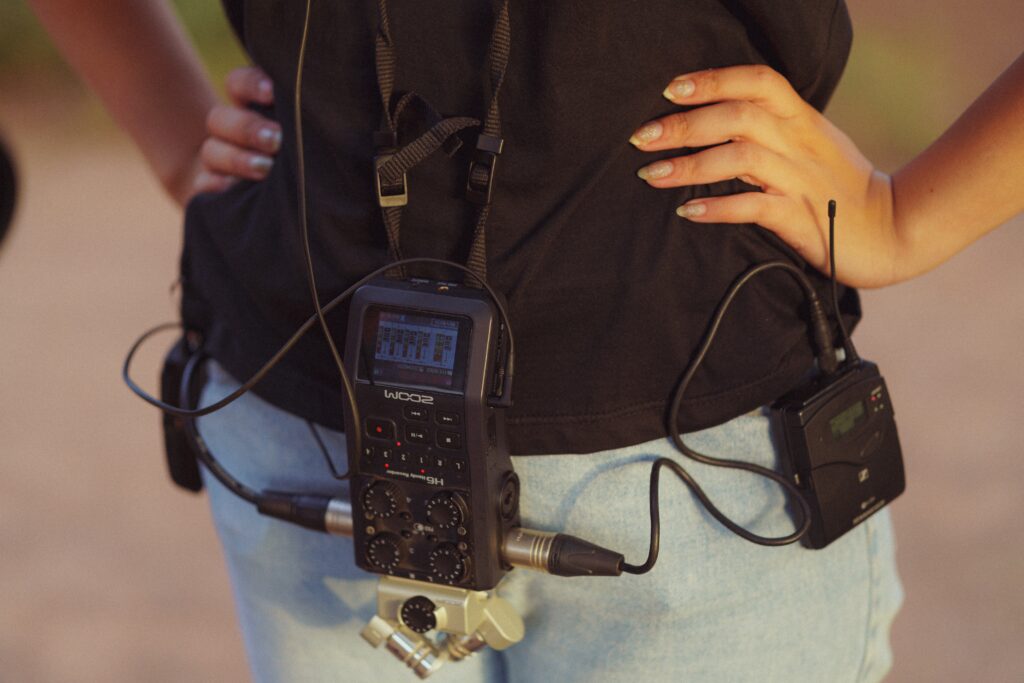 .
.
Choosing the Right Mixer
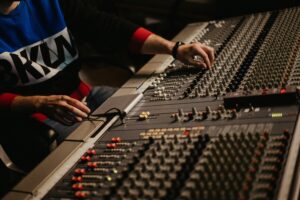 It all comes down to the projects, performances, and/or sessions the audio engineer will be assisting in. Think about portability, the number of channels you need, and your budget.
It all comes down to the projects, performances, and/or sessions the audio engineer will be assisting in. Think about portability, the number of channels you need, and your budget.
Even though digital mixers seem convenient they can become costly. Consider an analog board to get you started with live sound. If you are needing the mixer for live streaming and other digital devices then a digital board would most likely be best.
Podcasts, TV, and Film use a variety of mixers, there is no one true mixer. Audio engineers use different sound mixers over the years and they decide which is best for them and their audio lifestyle.
